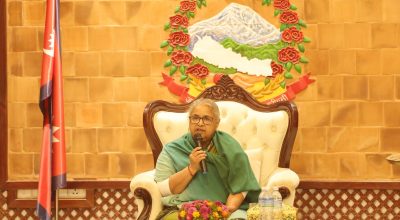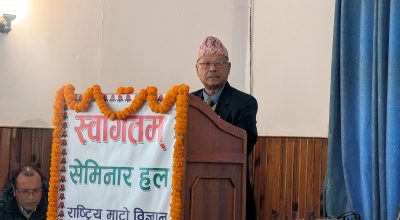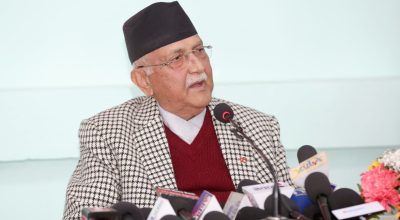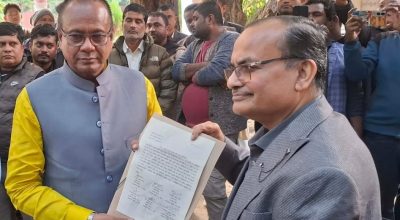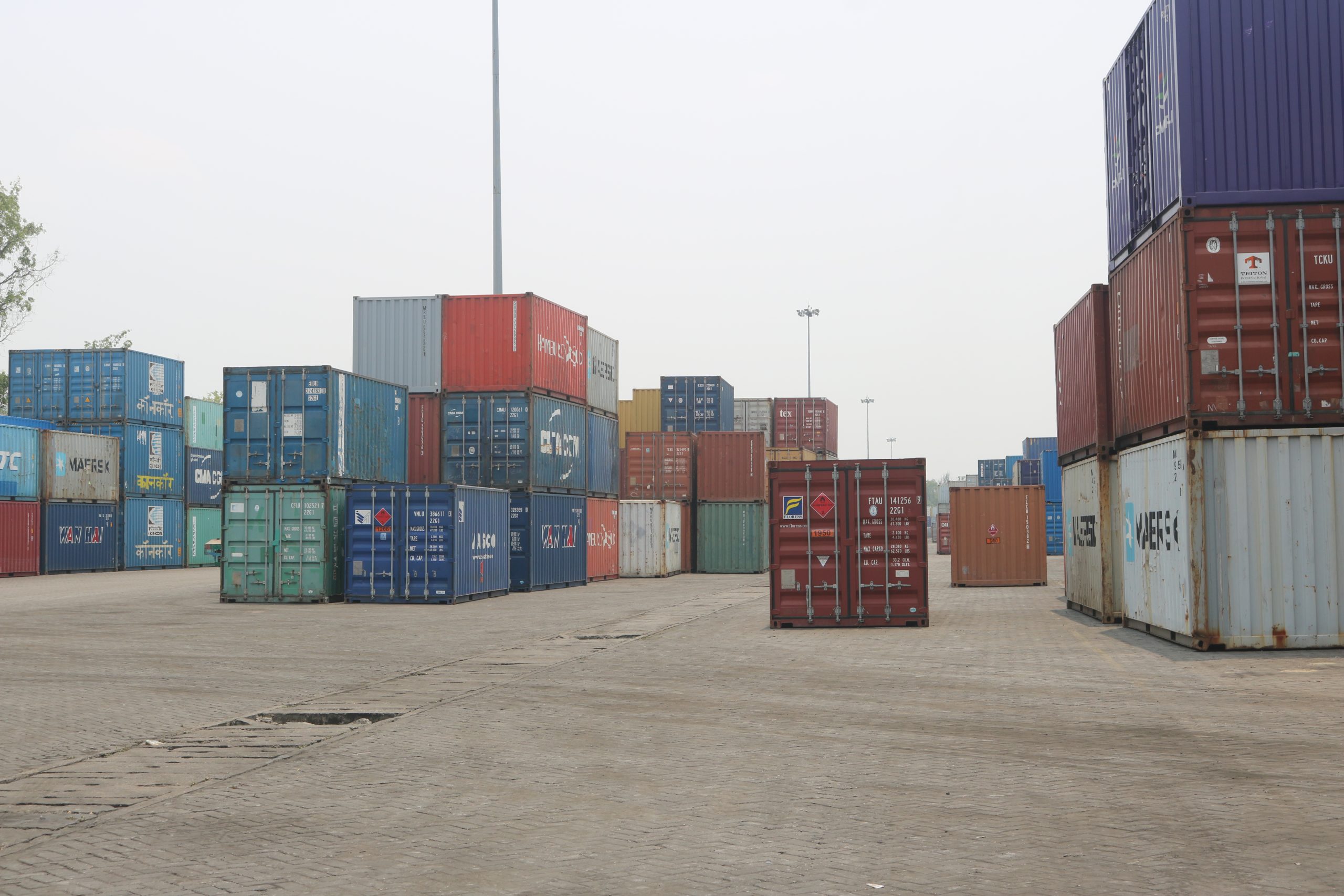
Himal Lamsal
Birgunj, Oct 17: The customs sit-in protest during the Madhes movement and the Indian unofficial blockade significantly reduced imports through the two customs points in Birgunj. In fiscal year 2072/73 BS, imports through these two customs points shrank by around 35 percent.
According to the Customs Department’s data for fiscal year 2072/73, goods worth a total of Rs 774 billion were imported into Nepal. During that year, due to the Madhes movement and the unofficial blockade from Ashwin to Magh, the share of the Birgunj customs in total imports was 23.50 percent, while the other dry port customs office contributed 12.23 percent.
The movement not only led to a decrease in imports through Birgunj but also caused a shift of imports to the Bhairahawa customs. That year, the Bhairahawa customs accounted for 24.07 percent of total imports, amounting to Rs 186.48 billion.
Nine years after the constitution was promulgated, total imports through the Birgunj customs have again shown a significant recovery. Currently, nearly 50 percent of goods are being imported through the two major customs points in Birgunj.
By the fiscal year 2080/81BS, amid total imports worth Rs 1592 billion, the contribution from the Birgunj customs was 34.30 percent, and that from the dry port was 12.78 percent. The Bhairahawa customs contributed 15.23 percent of total imports.
Hari Gautam, senior vice-president of the Birgunj Chamber of Commerce, stated that although imports have returned to their previous levels since the constitution was promulgated, improvements in industry and business have not flourished. “Due to the well-equipped dry port and integrated inspection facilities, imports from here have returned to their previous state,” he said, “but industries, traders, and markets displaced due to the movements have not yet recovered.”
Gautam expressed concern that industries previously centered in Birgunj are increasingly relocating to Bara and Hetauda. “It seems that vehicle imports from the Birgunj customs are also shifting to the Bhairahawa customs,” he noted, adding that political stability and an industry-friendly environment are crucial.
Rajendra Dhungana, chief customs officer of the Birgunj customs office, mentioned that more than one-third of total imports come through the Birgunj customs office. “The contribution of Birgunj to total imports seems satisfactory,” he stated, adding that the decision on where to import goods depends solely on traders and businesspeople. According to him, petroleum products, industrial raw materials, and vehicles are the main imports through the Birgunj customs office.
The Customs Department’s data shows a notable improvement in imports from both Birgunj customs offices since the fiscal year 2073/74. In that year, among imports worth Rs 984 billion, the contribution of the Birgunj customs was 34.12 percent, while the dry port office contributed 11.76 percent. The Bhairahawa customs office accounted for 18.55 percent of imports.
In the fiscal year 2074/75, Nepal imported goods worth Rs 1245 billion, with the contributions from Birgunj customs and the dry port being 33.89 percent and 10.49 percent, respectively. The Bhairahawa customs office contributed 17.99 percent.
According to the department, during the fiscal year 2075/76, goods valued at NPR 1418 billion were imported, with the Birgunj customs contributing 34.73 percent, Bhairahawa customs 16.92 percent, and the dry port 10.92 percent.
From the first week of Chaitra in 2076, lockdowns were implemented to control the COVID-19 pandemic, which caused a decrease in overall imports compared to the previous year. In that fiscal year, goods worth Rs 1196 billion were imported, with 34.37 percent coming through the Birgunj customs point, 13.84 percent through the dry port, and 16.61 percent through Bhairahawa.
As the effects of COVID-19 waned, the fiscal year 2077/78 saw significant recovery, with imports reaching Rs 1539 billion. The Birgunj customs office accounted for 33.23 percent of total imports, while the dry port contributed 12.30 percent and Bhairahawa 18.29 percent.
With the impacts of COVID-19 reduced, the fiscal year 2078/79 recorded imports worth Rs 1920 billion. In this year, the Birgunj customs office contributed 36.78 percent, the dry port 11.35 percent, and Bhairahawa 15.40 percent.
According to department data, total imports in the fiscal year 2079/80 amounted to Rs 1611 billion, with Birgunj customs contributing 36.82 percent, the dry port 12.55 percent, and Bhairahawa 15.19 percent.
Kumar Temani, president of the Nepal Chamber of Commerce in Madhes Province, pointed out that the policies adopted by the government after the COVID-19 pandemic have caused significant issues in the economy, preventing the recovery of the industrial and business sectors. “The policies introduced by the central bank after COVID-19 have caused serious problems in the economy,” he said, “which have hindered industries from returning to their previous levels.”
Senior vice-president Gautam of the Birgunj Chamber also expressed concerns that industries have been operating at only 30 to 40 percent capacity since the pandemic. “After COVID-19, large industries have been functioning at only 30 to 40 percent capacity,” he noted, adding that industries and factories are facing challenges in covering their expenses. Since the pandemic, there has been minimal growth in industries in Bara and Parsa. #custom #birgunj #nepal #import





